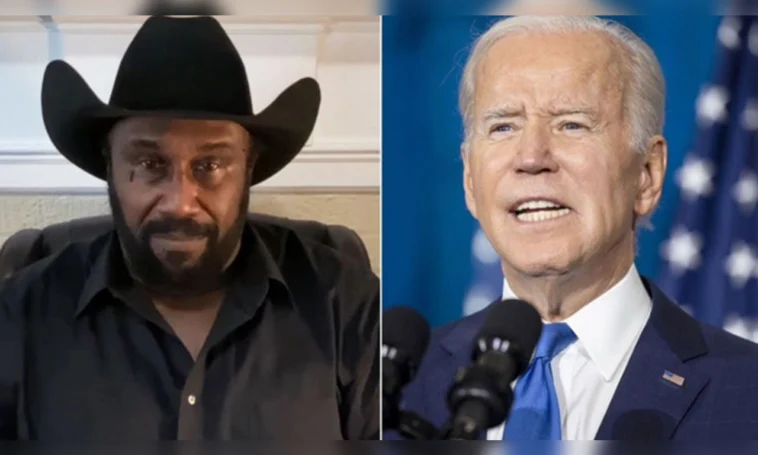In a candid interview, Boyd didn’t hold back in expressing the dire situation many farmers find themselves in, asserting that the farming industry is currently on the brink of extinction due to policies that, in his view, prioritize foreign aid over domestic agricultural needs.
“Every time I look at the news, there’s another commitment to help foreign countries. We probably helped Ukraine, probably $100 billion or so, and we can’t get debt relief for American citizens in this country,” Boyd said.
One of Boyd’s primary contentions is the allocation of substantial financial resources to foreign countries while American farmers grapple with financial difficulties and foreclosures. He highlighted the considerable aid sent to farmers in Ukraine, Israel, and other nations, contrasting it with the struggles of U.S. farmers who face mounting debt and the threat of losing their farms.
Boyd questioned the priorities of the Biden administration, especially given promises of a meeting with the president to address the pressing issues affecting American farmers, a meeting that, as of the interview, had not materialized.
The repeal of debt relief for Black farmers, a measure initially supported by President Biden, further fueled Boyd’s frustration. He argued that despite the administration’s willingness to extend financial assistance to foreign nations, it fell short in fulfilling commitments to provide relief for American farmers facing economic challenges and foreclosures.
The president of the National Black Farmers Association underscored the immediate and tangible impacts of these policy decisions on the farming community. He pointed to the rising price of farmland, which increased nearly 8% in 2023, effectively pricing many young farmers out of the market.
Boyd’s advocacy has been particularly focused on supporting farmers, especially Black farmers, who have faced allegations of racial discrimination in dealings with the USDA in recent years.
Boyd provided a real-time perspective on the challenges small farmers are encountering, citing the diminished capacity of beef cattle farmers to meet demand. He spoke about the decline in beef production, with the number of cows and calves down close to 3%, resulting in 1 billion pounds less of American beef compared to the previous year. According to Boyd, this reduction is due to a lack of investment in the farming sector, particularly in supporting beef cattle farmers.
The consequences of this situation are evident at livestock markets, where Boyd observed empty stalls during a recent visit. Historically filled with beef cattle and farmers selling their livestock, these empty stalls paint a stark picture of the economic difficulties faced by farmers who, during this critical time, usually use secondary income from selling beef to pay off debts and cover essential expenses.
Boyd’s concern extends beyond immediate economic challenges. He emphasized the potential long-term ramifications for the farming industry if urgent action is not taken. He warned that without significant changes in the next five to ten years, the country may face a scenario where the farming industry struggles to meet the nation’s food needs. In essence, Boyd stressed the urgency of implementing robust laws and policies to protect American farmers, placing them at the forefront rather than at the bottom of the tier when it comes to policy considerations.
The interview also delved into the partisan nature of the issue, with Boyd asserting that helping farmers should not be a matter of political affiliation. He expressed hope that the Biden administration would prioritize the needs of American farmers over international aid commitments, especially considering the severity of the challenges facing the farming community.
In response to Boyd’s concerns, the White House issued a statement acknowledging his work on behalf of Black farmers and the insights he provides into the struggles they face.
The statement highlighted an invitation extended to Boyd for an event at the White House, which he couldn’t attend, and expressed a desire to collaborate in the future. It also emphasized recent investments made through the Inflation Reduction Act, providing assistance through the USDA and focusing on improving land access opportunities.
READ MORE




One Comment
Leave a ReplyOne Ping
Pingback:FBI reportedly investigating controversial Tiffany Henyard who schmoozed with Biden - Hard Knock News